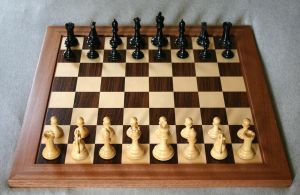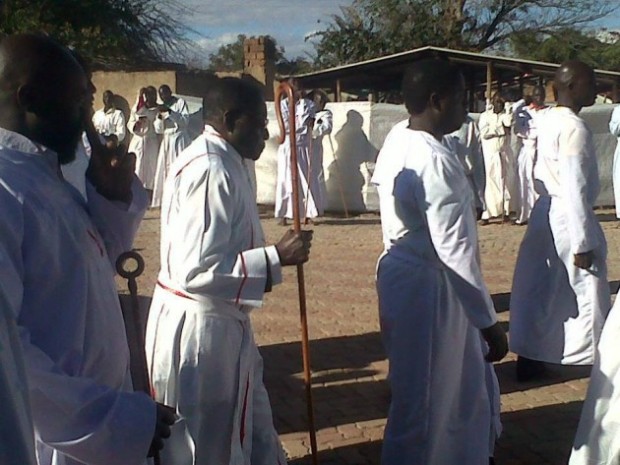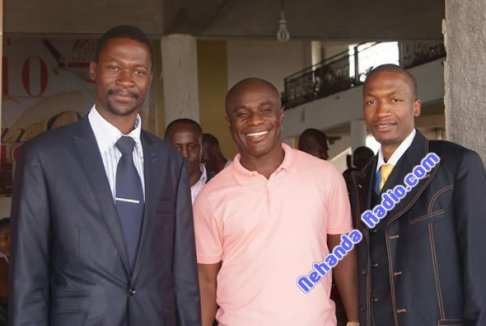“It is a duty of loyal vassals to tell their lords the truth in its proper shape and essence without enlarging it out of flattery or softening it for any idle reason. I would have you know, Sancho, that if the naked truth were to come to the ears of princes, unclothed in flattery, this would be a different age. “ Cervantes, Don Quixote.
By Shaun Matsheza,
Imagine you are part of a scientific expedition, and you are lost somewhere in the jungle. You have lost your bearings, and you have to figure out what to do. There are various choices available to you as a team.
You could all split up, and hope one or some of you go(es) in the right direction- though breaking up into individuals or smaller teams also means that you are all more vulnerable to whatever dangers may lurk in the undergrowth. It also means that those who go the wrong way are doomed to die.
Or you could stick together, and choose to make a decision to move in one direction as a group, helping each other out. The entire group’s survival depends on making the right decision, and effectively following through on it. Everyone makes it, or everyone dies: one for all, and all for one.
The question is; if you are all equally leaders, with equal opinions, whose word determines which way you go? Do you all stand there bickering over who should lead, or wringing your hands, until some search party-or more likely a hungry carnivore- finds you?
Crisis of leadership
“There are many things wrong with this country. But it’s easy to fix them. All that’s needed is some real leadership. When we have leaders who clearly explain what’s wrong — and what needs fixing and how, by whom and by when, the people will follow. Easy!”
If only Zimbabwe had the right leaders, the argument goes, we would be in a much better position. There’s much truth to this statement. But as is the case with most truths, there is another side of the coin that is just as true: our country faces a serious lack of good followers.
Our leaders need good followers
Leadership, not matter how inspired or effective it is, is just one part of the whole. The other half of the equation is good followership. The problem in Zimbabwe, I believe, is limited understanding and practice of good political followership: everyone wants to be a leader.
Anthony B. Robinson states that ‘(political) followership may be defined as the ability to effectively follow the directives and support the efforts of a leader to maximize a structured organization.’ Sounds simple enough.
However, he also notes that the term “followership” is often linked to negative and demeaning words like ‘passive, weak, and conforming.’ For this reason, everyone wants to be a leader, but hardly anyone wants to be a follower.
Zimbabwean followership: Urimunhu wani?
A prevalent view of political leadership is that it is a top-down and agency-driven process. Zimbabwean politics, in particular, is overly fixated on the capabilities of leaders- such that joining a political program appears to entail unthinking subjugation to the will and intellect of a single man, as opposed to joining a long term plan with a broad, clear vision and strategy that supersedes the identity of whoever leads it at the moment. In a prefiguring of what we later term dictatorship, a single man is supposed to have all the answers. Think of it as signing up with the Israelites, but only because Moses is the leader, not because the point of the trip itself is to reach Canaan. Zimbabweans have had so many Moseses, that we’ve forgotten the point of our own journey. And this example makes it abundantly clear who Pharoah is.
In our current setup, it is not the merits of a political program that determine its success, but rather the surname it carries. Our current crop of opposition political leaders cannot imagine themselves ever being followers, as this would demean them. Unenge waakunzi munhu wani? They would rather hold on to their- admittedly hard won- fiefs, than make the hard decisions that will entail personal loss, but contribute to the greater good: a new democratic dispensation that will heal the country from the ravages that the clueless ZANU PF regime has wreaked upon it.
Any surprise then, at the tug-of-war that characterizes our contemporary political scene?
Not submission
Good followership should not be equated to ‘passive submission’. Rather, it means taking good care of leaders, done out of a sense of gratitude for their willingness to take on the responsibilities of leadership, and a sense of faith and hope that their capacities and their potential will be enough to achieve the collective goal.
It comes from a recognition that successful leaders get to be so with help from good followers (who may be more technically skilled than the leader in many areas, but choose to put the overarching goal over and above their own egos, and trust that the leader acts in the interest of that goal.)
A team made up entirely of strikers
Whenever I have conversations with compatriots, I get the impression that everyone feels they have the capacity to lead just as good as, or even better than, all the current crop of leaders. But if everyone is a leader, who gets to play the other roles?
We want leaders to deliver, but do we expect ourselves, as followers, to deliver too? We have to realize that good followership is demanded of us; supporting leaders, and assisting them to lead well. This in no way diminishes us, if the goal is big enough.
And those who understand good followership are bound to become better leaders-even simply from being able to,in their own decision making, better understand and leverage the perspectives of those around them.
We are in it together
One of the most crucial characteristics of an effective follower is the willingness to tell the truth, because bad followership breeds tyrants.
My aim is not to undermine the importance of having good leadership, and neither is this a rallying call to sycophancy – a quick scan of the Herald will let you know that we already have enough of that. It is that establishment to whom the quote at the beginning is directed, as well as those people who bafflingly maintain that all is fine in Zimbabwe- refusing to tell the emperor about his clothes.
No one person will lead Zimbabweans to their freedom. We apparently expect an omniscient messiah, perhaps like how some members of ZANU PF feel that they have found theirs in Robert Mugabe. But that is bad followership, and look at the bad leadership it has wrought us.
I write this merely so that we can evaluate where we stand as a nation. We have to make peace with the idea that no leader will have all the answers, and it is the role of some of us to become followers, and use our contribution to bridge that gap.
Subjugation to the idea, and not the man
It is like the exploration team in the jungle: recognizing the need to subjugate their egos to the most capable, with the overarching goal of saving everyone.
And capability is a very fluid and context-bound concept: Winston Churchill was a great war leader for Britain, but not so much in peace time. Perhaps striking the rock twice had nothing to do with Moses not arriving in Canaan: perhaps God knew that he was a great trek leader, but would have failed to capture Jericho and lead the Israelites forward, like Joshua. However, while Moses led, the Israelites followed, and when Joshua led, they did the same. They reached Canaan. The goal of arriving superseded the identity of the leader.
The expedition has a very clear overarching goal: finding a way out of the jungle and back to civilization, otherwise everyone rots in the jungle.
The success of the expedition as a whole depends on everyone playing their role in making sure that the team makes it back to the basecamp : one will know how to find water along the way, another how to trap birds, and yet another will lend his strength to carry those that are fatigued-but everyone makes it to basecamp together.
They may argue about how to get out of their predicament, but there is no time to debate whether there is a predicament or not; not when you can hear the beasts roaring in the distance.
This is not much different from the situation facing this great house of stone today. Yes, we are all born leaders. But until our political leaders themselves learn how to be effective followers, I’m afraid we’ve got a much longer stretch in this driest of wildernesses.









